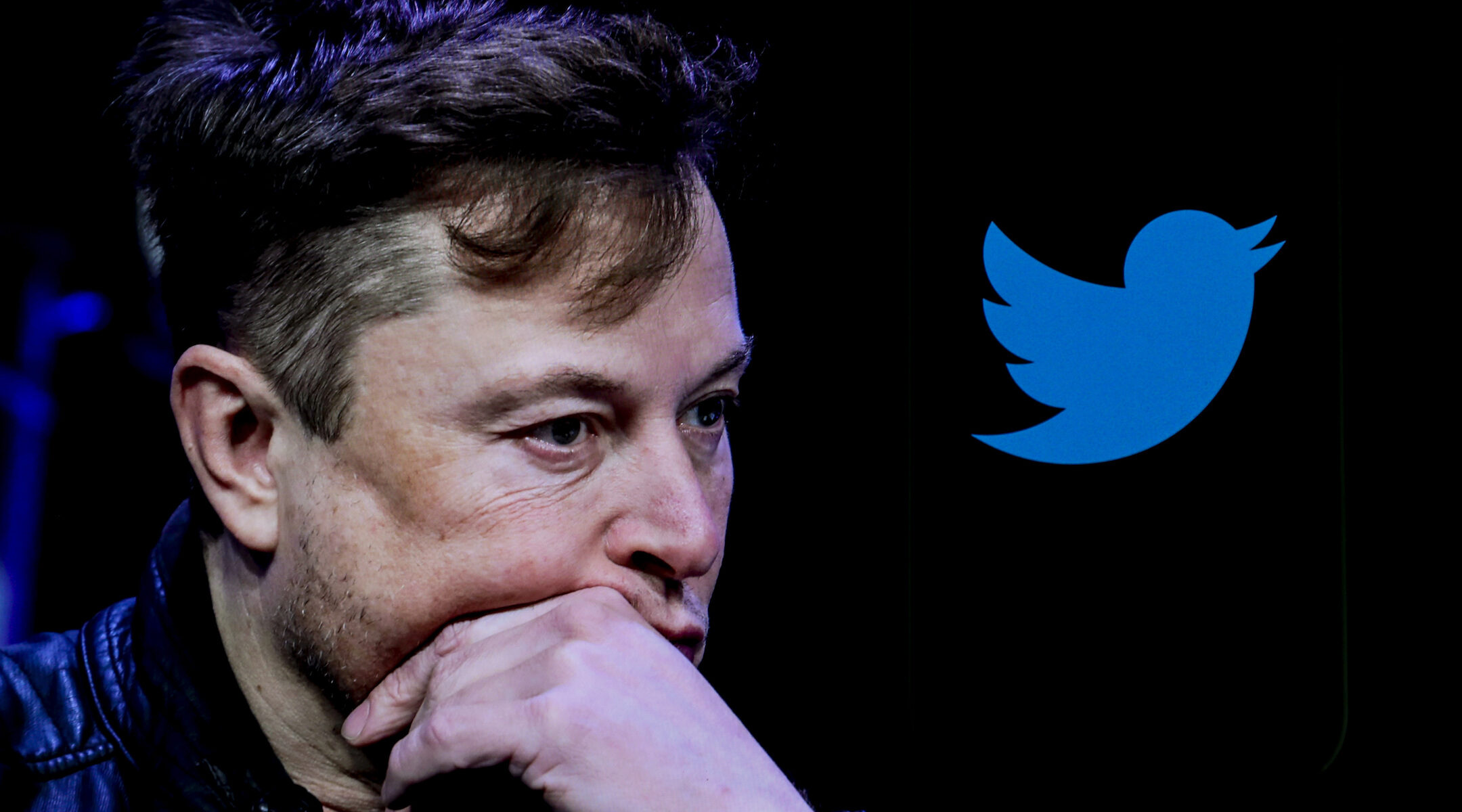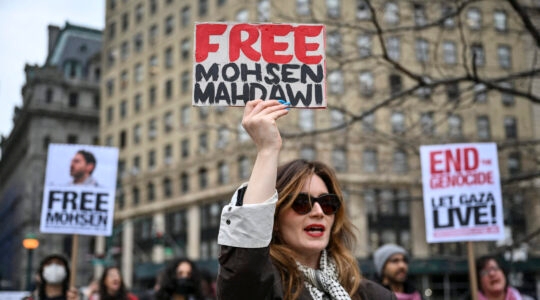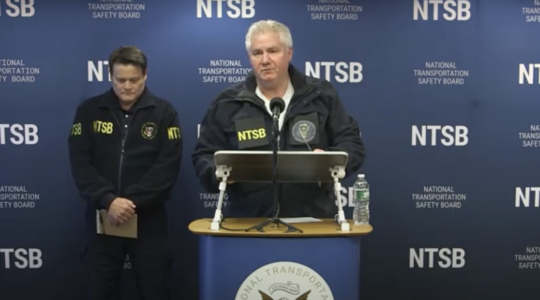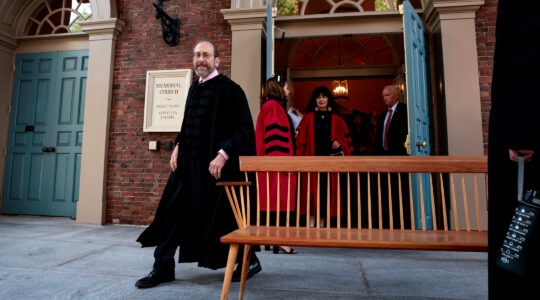(JTA) — Elon Musk bantered with Kanye West and trolled the Anti-Defamation League this weekend, in the latest of mounting signs that he is choosing to let the platform become a free for all after acquiring it last month.
West, the rapper and designer who also goes by Ye, had been banned from Twitter last month for threatening Jews; he returned to the platform Nov. 4 and was swiftly banned again after he launched a new round of anti-Jewish invective.
“Testing Testing Seeing if my Twitter is unblocked,” West tweeted midday Sunday. Several hours later, Musk appeared to be welcoming West, punning on West’s more recent name in a response to his question: “Don’t kill what ye hate Save what ye love,” Musk tweeted.
West’s next tweet was simply “Shalom” followed by a smile emoji, a message that appeared to wink at his ongoing antisemitism controversy.
West’s return to Twitter came amid a slew of restorations of accounts that had been banned for violating Twitter’s rules. On Friday, Musk restored Donald Trump’s account, following a poll of users that narrowly concluded that the former president should be allowed to return after being suspended because his incendiary tweets helped spur the Jan. 6, 2021, insurrection at the U.S. Capitol. (Trump for his part was blase about his restoration, saying he preferred Truth Social, his own social media platform.)
Musk also restored the accounts of the Babylon Bee, a satire site, and Jordan Peterson, a conservative commentator. Both had been suspended over tweets targeting trans people and had declined to remove the tweets that Twitter said violated its policies on hateful content.
Other than with Trump, it was not clear what process Musk followed, if any, to guide his decision making — a dynamic that is at odds with what the Anti-Defamation League’s CEO, Jonathan Greenblatt, said he had been promised when he and others met with Musk on Nov. 1 to urge him to combat hate on the platform.
“He committed not to replatform anyone, regardless of stature, until he installed a transparent, clear process that took into consideration the views of civil society,” Greenblatt said in a statement Sunday night. He called the poll that preceded Trump’s reinstatement “dangerous” and said, “It forces us to wonder whether he is serious about safeguarding the platform from hate, harassment and disinformation.”
The statement was an extended version of comments that Greenblatt had tweeted on Saturday night — and elicited a flip public response from Musk as a result.
“Hey stop defaming me!” Musk wrote, in a message widely interpreted as mocking the civil rights organization that has sought to play a leading role in pressing for a hate-free Twitter.
In the immediate wake of the Nov. 1 meeting, Greenblatt had expressed optimism about Musk’s commitment to ridding Twitter of hate speech. But as Musk instituted changes, firing or encouraging to quit hundreds of staffers, including the executives responsible for ensuring that the platform is free of hate, hateful language and harassment spiked on the site. The coalition Greenblatt initiated, Stop Hate For Profit, called on advertisers to quit Twitter until Musk makes changes.
A review of Musk’s more recent tweets suggested he was relishing the free for all. He mocked his critics, saying they were driving eyes to Twitter, joked that he hoped Twitter would induce a greater dopamine rush and then posted what he framed as a statement of his philosophy: “The most entertaining outcome is the most likely.”
JTA has documented Jewish history in real-time for over a century. Keep our journalism strong by joining us in supporting independent, award-winning reporting.






